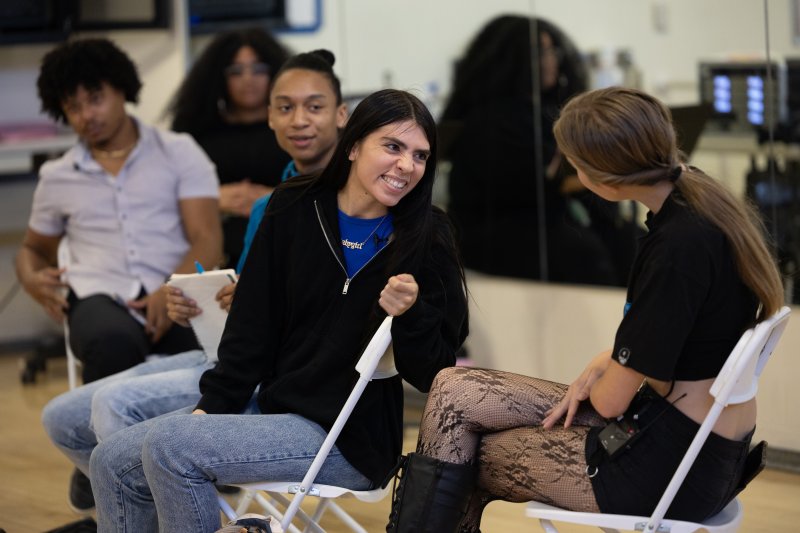
Point Loma Nazarene University’s Center for Justice and Reconciliation (CJR) was announced as one of the 18 winners of Phase 1 of the overall $1.8 million national competition. This innovation challenge, which includes a $50,000 award, was developed to identify, and award existing programs that demonstrate the effectiveness in preventing human trafficking and/or improving health outcomes related to human trafficking among women and girls.
The CJR was awarded for its kNOwMORE Human Trafficking Prevention Program, a drama-based and student-centered human trafficking awareness and prevention curriculum for middle school and high school youth in San Diego County. Through an innovative, interactive approach, kNOwMORE educates students on the red flags and warning signs of human trafficking and teaches them how to be an upstander to keep themselves and their peers safe from grooming and exploitation.
Since 2015, kNOwMORE has equipped over 15,000 students, parents, and administrators to recognize the warning signs of human trafficking and build the skills and confidence necessary to intervene and protect themselves or someone else. The curriculum has been performed in 30 schools and 6 school districts in San Diego, focusing on students who are at greatest risk of being targeted for trafficking (i.e. girls, students of color, those living in poverty, etc.).
In March of 2024, one student participant, Sophia, shared her take-aways from the program, saying: “I’ll try to pay closer attention to the people close to me and try to notice any differences in their behavior and also just be more cautious in general because now I know that recruiters can be anyone. It’s not just older men, it can literally be girls my age, so I will be more cautious and trust my gut.”
According to the White House’s National Action Plan to Combat Human Trafficking, women and girls are disproportionately impacted by human trafficking, which in turn undermines their safety, health, and well-being. Data from the National Human Trafficking Hotline shows women and girls comprised approximately 84% of individuals in trafficking situations, and 50% of individuals in labor trafficking situations reported to the Hotline in 2021. Women and girls who are sexually abused are more likely to suffer physical abuse, sexual re-victimization, and/or intimate partner violence later in life. Because 1 in 3 women experience intimate partner and/or domestic violence at some point in their lives, they are at a high risk of human trafficking and other forms of abuse.
“Concentrating on human trafficking among women and girls requires a multifaceted approach that combines prevention, education, and support,” said Dorothy Fink, M.D., Deputy Assistant Secretary for Women’s Health and Director of the Office on Women’s Health. “We commend the challenge winners for their dedication and demonstrated success in addressing this critical need.”
For more information about the Center for Justice and Reconciliation click here; and for more information about human trafficking among women and girls, visit womenshealth.gov.
